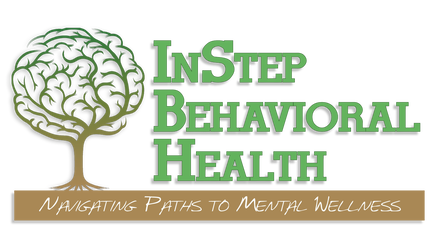Sleep Habits & Tips
3/06/2018
Is it bed time yet?
How many of us count down the hours until we can return to the comfort of our own bed? The CDC states that around 39% of adult men and woman have struggled with a diagnosable sleep disturbance at some point in their life.
In fact, sleep is so fundamental to our daily activities of living that researchers are continuously learning more about its role in diabetes, obesity, depression, and even cardiovascular disease.
The impact sleep has on our entire body is one that we have all felt after a sleepless night. Our lives only seem to get busier and our task list longer, leaving us to ponder how our sleep cycle got so out of whack. Sleep is the reset button for the brain. After a day of stimulation, the brain needs to power down in order to reset for the next day. When the brain does not have enough time to sort through the complications of the day, it begins the next day with issues remaining to be processed.
Preventing inadequate or poor quality sleep from spiraling out of control requires a bit of knowledge about sleep hygiene. Sleep hygiene refers to the patterns of behavior we attend to prior to entering a sleep state. The more consistent and dependable this structure is, the more likely we will have stability in our quality of sleep.
Here are five activities and guidelines you can use TONIGHT for more restorative sleep:
Following the guidelines above can help you quickly regain your sleep rhythm. You may also find it helpful to maintain a log to track interruptions in your normal sleep patterns (Please download link below). If sleep complications persist, please seek medical attention as the symptoms could worsen to the point of becoming a disorder that is more challenging to resolve.
630-262-2640
Matthew Cermak
SW LSW CADC MISA I
Is it bed time yet?
How many of us count down the hours until we can return to the comfort of our own bed? The CDC states that around 39% of adult men and woman have struggled with a diagnosable sleep disturbance at some point in their life.
In fact, sleep is so fundamental to our daily activities of living that researchers are continuously learning more about its role in diabetes, obesity, depression, and even cardiovascular disease.
The impact sleep has on our entire body is one that we have all felt after a sleepless night. Our lives only seem to get busier and our task list longer, leaving us to ponder how our sleep cycle got so out of whack. Sleep is the reset button for the brain. After a day of stimulation, the brain needs to power down in order to reset for the next day. When the brain does not have enough time to sort through the complications of the day, it begins the next day with issues remaining to be processed.
Preventing inadequate or poor quality sleep from spiraling out of control requires a bit of knowledge about sleep hygiene. Sleep hygiene refers to the patterns of behavior we attend to prior to entering a sleep state. The more consistent and dependable this structure is, the more likely we will have stability in our quality of sleep.
Here are five activities and guidelines you can use TONIGHT for more restorative sleep:
- Organize an 8-hour window that you can commit to each night as an “opportunity” for sleep. Keep the bedroom around 68 degrees.
- Avoid lying in bed; if you don’t fall asleep in 20 minutes, get up and read a book. No cell phone or TV as the blue component of the light impedes melatonin release and tricks the brain into thinking its daytime.
- Avoid caffeine and sugar as you wind down. Although some can sleep with either in their system, it prevents sleep from entering the restorative depth needed in our sleep cycle.
- Be aware that consumption of alcohol does not help you gain the benefits of a natural sleep cycle. Alcohol sedates the brain rather than allowing our brain to shut down naturally.
- Maintain consistent activity. Light physical activity 3-4 times weekly can help dramatically improve sleep and several other areas of life.
Following the guidelines above can help you quickly regain your sleep rhythm. You may also find it helpful to maintain a log to track interruptions in your normal sleep patterns (Please download link below). If sleep complications persist, please seek medical attention as the symptoms could worsen to the point of becoming a disorder that is more challenging to resolve.
630-262-2640
Matthew Cermak
SW LSW CADC MISA I
Click the button below for a playlist of short videos presenting sleep tips.
*C. (2017, May 04). Sleep and Sleep Disorders. Retrieved March 01, 2018, from https://www.cdc.gov/sleep/publications/factsheets.html
